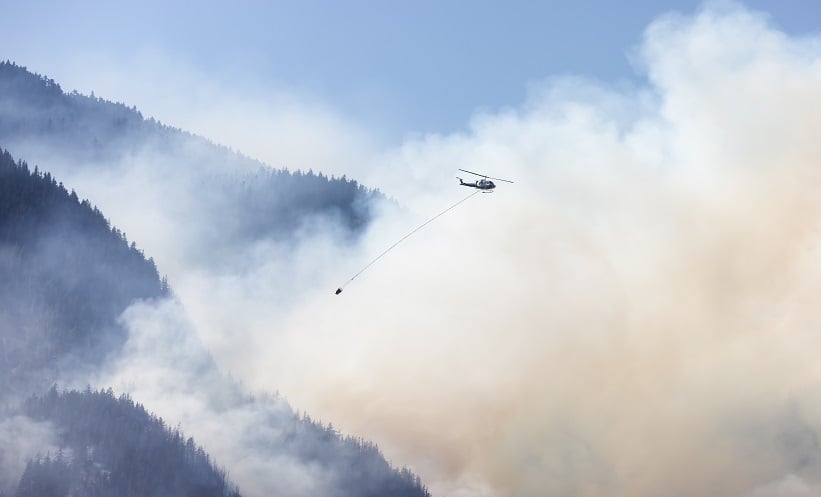THE GROWING health crisis posed by wildfire smoke, even from thousands of miles away, was made clear in a recently published study. Researchers investigated the impact of intense wildfire smoke from Western Canada on cardiopulmonary health in Maryland, USA, during June 2023. Their findings revealed a significant increase in clinical encounters for heart and lung issues, highlighting the far-reaching consequences of air pollution.
The study focused on 6 calendar days identified as “hotspot days,” where particulate matter (PM2.5) concentrations surged beyond the National Ambient Air Quality Standard of 35 μg/m3. Baltimore City experienced a staggering 9.4-fold increase in PM2.5 levels from June 6-8 and a 7.4-fold spike from June 28-30, compared to other days in 2023.
Using data from the University of Maryland Medical System, researchers analyzed 2,339 clinical encounters in June 2023, comparing them to control years 2018-2019. The results revealed a marked rise in cardiopulmonary events, with 25.1% of encounters occurring on hotspot days in 2023 versus 22.3% in previous years. Statistical analysis confirmed a significant association, with an adjusted odds ratio (aOR) of 1.18 (P = .02).
Cardiac cases showed an even higher increase, with adjusted odds rising by 20% (aOR, 1.20; P = .04). Notably, patients affected on hotspot days tended to come from slightly higher socioeconomic backgrounds, as reflected by area deprivation index scores.
As wildfires become more frequent and intense due to climate change, this research calls for heightened awareness and proactive measures to protect vulnerable populations from the invisible threat of air pollution. For healthcare providers, the study serves as a reminder of the need to anticipate and address environmental factors influencing patient health.
Reference: Maldarelli ME et al. Polluted Air from Canadian Wildfires and Cardiopulmonary Disease in the Eastern US. JAMA Netw Open. 2024;7(12):e2450759.
Anaya Malik | AMJ








